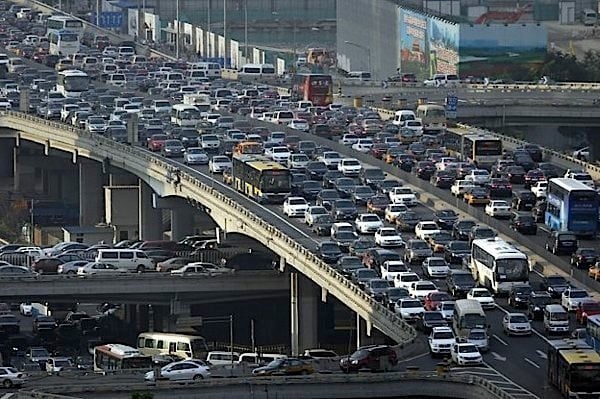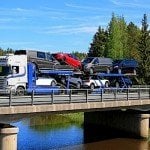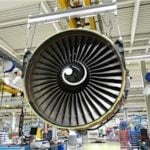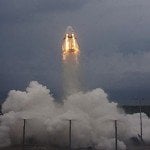According to a recent Statistics Canada report, our commute now takes 57% longer today, as compared to the previous report. Put another way, ten percent of our waking lives are wasted in stop-and-go congested traffic. The result is rapidly escalating greenhouse gas emissions, billions of dollars in lost economic value, and health-debilitating stress. Numerous studies cite the risks to the health of rush-hour congestion, both from pollution, and stress.
Researchers at Nottingham University have expanded on an idea that began is Asia — where underground roadways are more common — with an engineering concept called “Deep Roads.”
The plan uses prefabricated sections walls and ceilings to create two layered roads — on top, electric cars, hybrids and bicycles have free reign, while down below we gas-emitters will drive through a ventilated roadway. The plan includes pollution scrubbing, so that ventilated air is clean.

The promising concept does not rely on tunnelling and boring technologies. Instead, the concept is to trench down for the first level, then used prefabricated components to support the sides and roof. The top can either be used as reclaimed land for parks and other uses, or as a second layer of traffic. Pollution is handled not just through ventilation, but through a “Deep Farm Air Purifier” that expels mostly clean air after by scrubbing harmful pollutants.
Feasibility: opinion is split
Engineers are split on opinion on the concept. While it’s likely possible to build with current technology, it would be an expensive proposition — akin to constructing a miles-long building (considering it has walls and a roof). The main holdback may be cost.
However, the pressing demand for a solution to congestion and pollution — especially in super congested European and Asian cities — may make it an inevitable necessity. As costly as it is, it might be more cost-effective than suffering the economic devastation caused by long commute times, and it may well become a necessity, regardless of cost, given the expectation of 2 billion cars on the road by 2040.

Overcoming the barrier of high investment
The rationale to overcome the high costs would be:
- Saving the economy billions of dollars lost to rising commute times — not just for commuters, but for truck transport and the reliant logistics.
- Significantly reducing pollution from one of the main contributors to carbon emissions.
- Infrastructure technologies are more appropriate than trying to compel consumers to buy electric or hydrogen — it’s unreasonable to expect compliance, as seen by the resistance to the diesel prohibition in some European cities.
- Boost to the economy in terms of tourism and trade.
- Prevention of relocation of critical industries from prime hubs; congestion is making it more difficult for employers to attract top talent, forcing companies to move outside cities.
- Compliance with green regulations, with targets for reducing pollution, which potentially, in future, will carry fines.
- Habitability cost, the asset value of homes, and quality of living factors.
- Saving of historically significant monuments and buildings, currently being eroded by heavy pollution in some cities such as London and Rome — not just cost savings, but a preservation gain. Thousands of monuments are in danger from pollution-related deterioration.
- Potentially billions saved in medical treatments over time as reduced pollution reduces respiratory issues; plus, the lifestyle improvement benefit of lower pollution.
- Reduction in noise pollution, especially from diesel vehicles and trucks.

Billions spent on taking roads deep could very well be a good investment in terms of the economy and environment, although the upfront costs are staggering, and politically difficult to justify.
Scenarios
There are various scenarios for this engineering concept:
- Double tiered roads for bigger highways in suburban and rural areas.
- Reclaiming of top-level for parks, pedestrians, shops and living amenities — while traffic rumbles away one level down, with exhaust fumes scrubbed.
- Top level for emissions-free vehicles would give the environment a breather, and also provide safer routes for bicycles — who would only have to dodge electric cars in lower density.

































